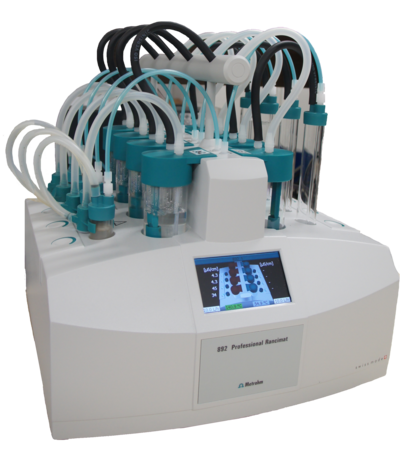
| OELCHECK test instrument: | Metrohm 892 Professional Rancimat |
| Sample quantity: | 20 ml |
| Unit: | h |
| Result range: | Induction time (the time until the abrupt increase in conductivity). |
| Analysis for: | Biodiesel (FAME), blends of FAME with diesel fuel with at least 2% (v/v) FAME |
| Brief description: | At a defined temperature of 110°C, purified room air is passed through the fuel sample. This produces highly volatile oxidation products (mainly short-chain carboxylic acids), which are transferred with the air flow into a measuring vessel and dissolved there in the measuring solution (distilled water). The conductivity is measured continuously in the measuring vessel. This increases as the oxidation of the sample progresses. The result of this standardized procedure is the induction time, i.e. the time until the abrupt increase in conductivity. |
| Statement: | The requirements standards for diesel fuel DIN EN 590 and for fatty acid methyl ester (FAME) DIN EN 14214 specify how high the oxidation stability must be for the respective fuel. The oxidation stability of fuels can be improved by adding additives. This method can be used to determine oxidation stability by determining the induction time. |
| Underlying test standard: | DIN EN 15751 |
| Comparable methods: | DIN EN 14112 (only applicable for fatty acid methyl esters (FAME)) |
| Deviating methods: | DIN EN 16568 (accelerated process at 120°C) |